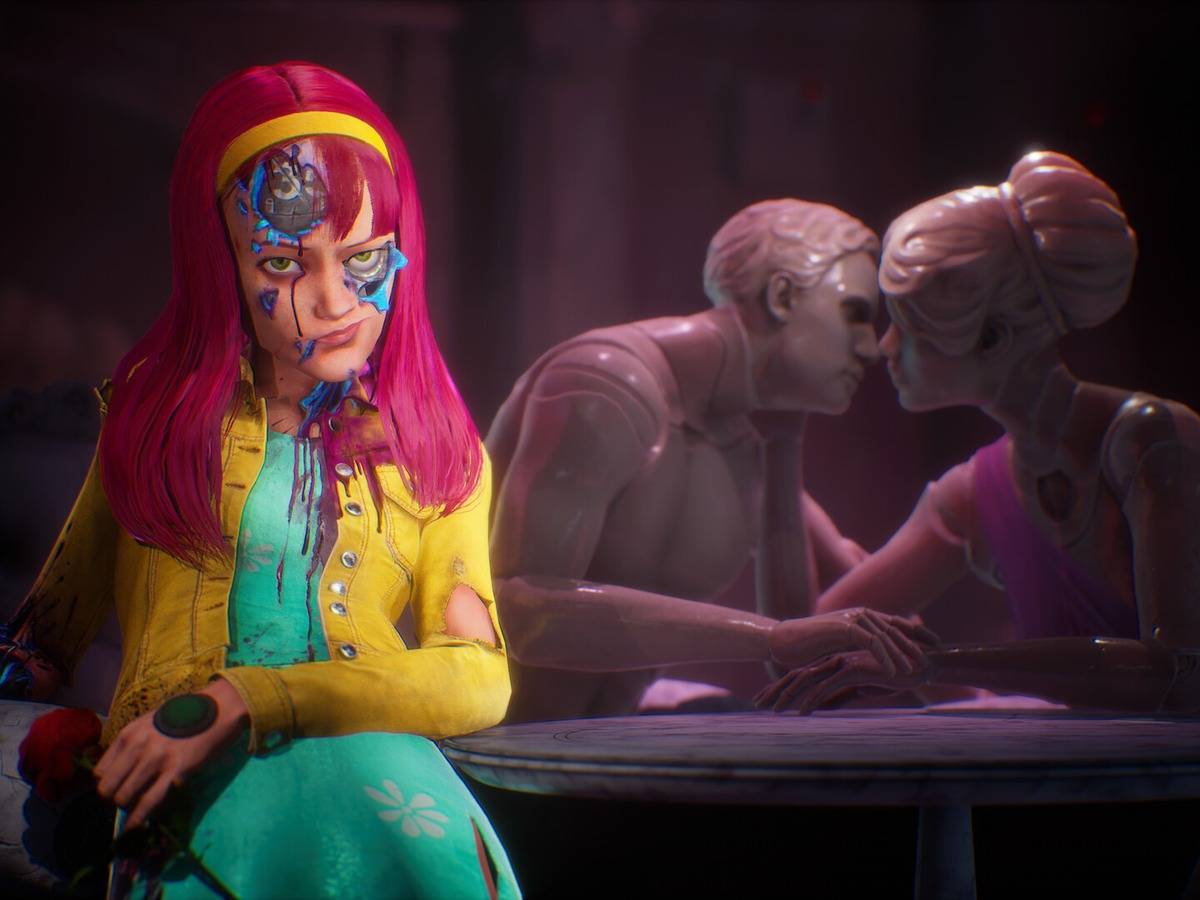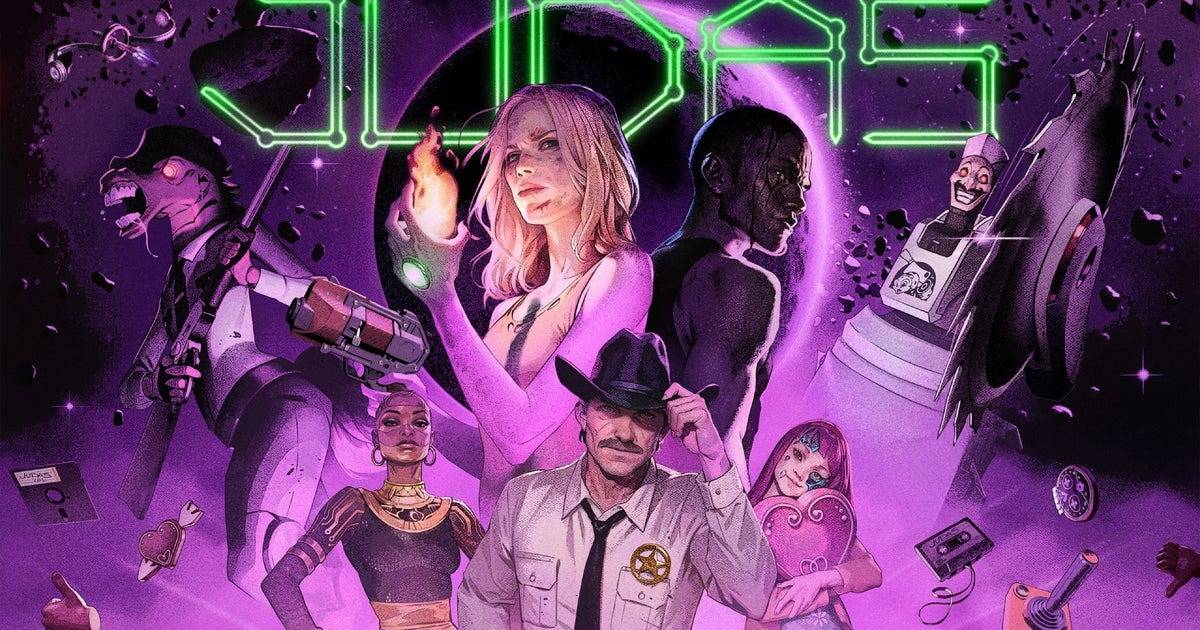Dynamic Antagonism: Ken Levine’s Judas Unveils Player-Chosen Villain System in Major Update
Popular Now
 NBA 2K24
NBA 2K24
 Candy Crush Saga
Candy Crush Saga
 Warframe
Warframe
 Valorant
Valorant
 Toca Boca World
Toca Boca World
 Call of Duty
Call of Duty
 Black Myth: Wukong
Black Myth: Wukong
 Gacha Club
Gacha Club
 God of War Ragnarök
God of War Ragnarök
 Fortnite
Fortnite 
In a significant announcement that has electrified the gaming community, Ken Levine, the creative mastermind behind the BioShock franchise, has offered a deep dive into the core mechanics of his long-awaited new project, Judas. Emerging from a period of relative silence, a new developer log from his studio, Ghost Story Games, confirms that the single-player, narrative FPS is pioneering a revolutionary ‘Villainy’ system, a central feature designed to fundamentally reshape the player’s experience by allowing their in-game actions to determine the identity of the final antagonist.
This BioShock successor is set aboard a disintegrating starship called the Mayflower, a society entirely run by machines. The player takes on the role of Judas, a mysterious and troubled figure initiating a revolution. The critical drama revolves around a trio of central non-player characters, collectively known as the “Big 3”: Sheriff Tom Austin, Dr. Nefertiti Okeke, and Hope Jimenez. These characters each harbor distinct ideologies, motivations, and conflicting goals for the future of the Mayflower and humanity’s mission to Proxima.
 The Villainy System: A Twist on Narrative Structure
The Villainy System: A Twist on Narrative Structure
Unlike traditional narrative games, including Levine’s own BioShock titles where villains like Frank Fontaine or Zachary Hale Comstock are pre-determined, Judas employs the ‘Villainy’ system to inject dynamic, emergent gameplay into the main storyline. This system is a sophisticated evolution of reputation and relationship mechanics, promising to make every playthrough unique.
The core concept is brilliantly simple yet complex in execution:
- Initial Alliances: The player’s actions, choices, and attention will initially attract the members of the Big 3 as allies and friends, each offering their support, unique missions, and dark secrets.
- The Betrayal Mechanic: The dramatic tension stems from the fact that you must eventually choose who to trust and, consequently, who to neglect. “Ignore one of them enough, and they become the VILLAIN,” Levine explained in the latest dev log.
- Reactive Antagonism: The alienated character then gains a “new suite of powers to subvert your actions and goals,” transforming from a trusted friend into a formidable, powerful, and deeply personal enemy. This new villain will actively observe and react to your combat style, hacking proficiency, resource management, and interactions with the remaining two characters.
This depth of character observation and reaction, where the NPCs know more about the player than the player knows about them, is a significant departure from the dynamic of Booker and Elizabeth in BioShock Infinite, adding immense replay value and emotional weight to your decisions.
 Drawing Inspiration from the Nemesis System
Drawing Inspiration from the Nemesis System
Levine openly cites Middle-earth: Shadow of Mordor and its revolutionary Nemesis System as an inspiration. However, he emphasizes that Judas seeks to build more “intimate” and emotionally resonant relationships. While the Nemesis system created memorable encounters with countless orcs, Judas focuses on developing just three core relationships so thoroughly that “losing one of them to feel like losing a friend.”
The Big 3 will actively compete for your favor, engaging in complex political maneuvers:
- Bribes and Assistance: Offering valuable resources or intervening to save you during a challenging combat sequence.
- Psychological Warfare: Sharing ‘darkest secrets’ about the other two characters to sow distrust and reinforce their own alliance with you.
- Active Subversion: Once a villain, they may sabotage resources you rely on. For example, the developer update highlighted Sheriff Tom Austin, a Big 3 member, being able to turn the friendly, rentable robot allies known as ‘Rent-a-Deputies’ against the player if he becomes the antagonist.
This high-stakes relationship triangle ensures that the choice is not just a binary good/evil decision, but a constant balancing act where prioritizing one character’s mission or ideology necessarily means neglecting or betraying another’s. The financial implications for AAA shooter design are immense, as this system requires writing and developing three distinct, fully realized antagonistic paths.
Artistic Direction and Release Date Speculation
Accompanying the gameplay revelations, Ghost Story Games also unveiled striking new key art for Judas, heavily influenced by the iconic, large-cast movie posters of artist Drew Struzan (Star Wars, Indiana Jones). This art piece subtly hints at the game’s expansive cast, which Levine stated includes over one hundred speaking parts outside of the main roles, underscoring the scale of this new, unpredictable narrative. Every detail in the art, according to Levine, is relevant to the unfolding story.
Regarding a definitive release date, the studio remains cautious. Levine noted the industry’s history of date changes, emphasizing their commitment to avoiding a similar scenario for the final product. While no specific launch window was provided, the completion of the ‘Villainy’ milestone signals a major step toward finalization for the game, which is confirmed for PlayStation 5, Xbox Series X/S, and PC.
The news confirms that Judas is not merely a spiritual successor to BioShock but a bold new venture into choice-driven narrative design. By integrating the core antagonist into the emergent gameplay loop, Levine is attempting to bridge the gap between deeply personal character development and the systemic replayability of a game like RPG, promising an experience where every single decision holds substantial emotional and narrative consequence. For fans eager for a truly reactive world, the emergence of Judas from the shadows is the most exciting development in the video game market this year.
Why the Villainy System is a Game Changer for FPS Narrative
The mechanical difference between a fixed villain and a dynamic, player-chosen one represents a massive challenge in game design, yet it offers unparalleled opportunities for immersion and replayability. Judas is betting its success on making the player feel that their hands are genuinely on the steering wheel of the story’s most dramatic outcome. The Big 3 are not disposable quest-givers; they are three fully realized, complex potential antagonists, each representing a different philosophical conflict within the Mayflower’s broken society.
- Emotional Investment: By initially establishing a friendship before the inevitable betrayal, the choice carries genuine emotional weight, making the resulting conflict far more impactful than fighting a pre-defined enemy. This is a deliberate attempt to correct the narrative imbalance Levine felt in BioShock Infinite, where the player-character Booker was a known quantity to Elizabeth, but Elizabeth’s knowledge of the player was limited.
- High CPC Keyword Integration: The implementation of such a complex, proprietary system like ‘Villainy’ gives the game a unique selling point, naturally attracting high-value CPC keywords in advertising and search results related to innovation, narrative, and choice-based games.
- Unpredictable Gameplay Loops: The character-specific powers gained by the villain ensure that the player cannot rely on a single strategy. A villain focused on sabotaging resources or turning allies against you will force a different playstyle compared to one who uses unique direct combat abilities. This boosts the potential for continuous engagement and discussion in the gaming community.
As development moves forward, the pressure is on Ghost Story Games to deliver on the promise of this ambitious ‘Villainy’ system. If successful, Judas will not only cement its place as a spiritual successor to BioShock but as a new benchmark for reactive, narrative-driven first-person shooters in the PC and console gaming landscape. Players await the inevitable—the moment they must choose who lives as a friend and who dies as their ultimate enemy.
Strong Focus: Pre-order Judas now to experience this groundbreaking player-chosen villain mechanic and redefine your relationship with narrative in an immersive FPS. Stay tuned for the official Judas release date announcement.










 The Villainy System: A Twist on Narrative Structure
The Villainy System: A Twist on Narrative Structure Drawing Inspiration from the Nemesis System
Drawing Inspiration from the Nemesis System